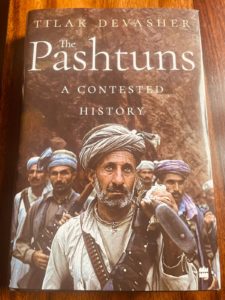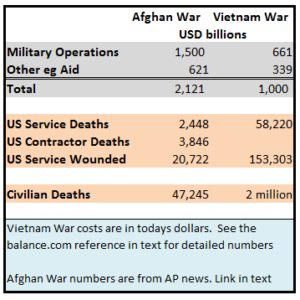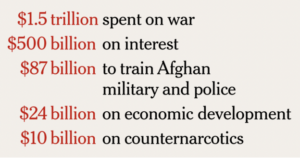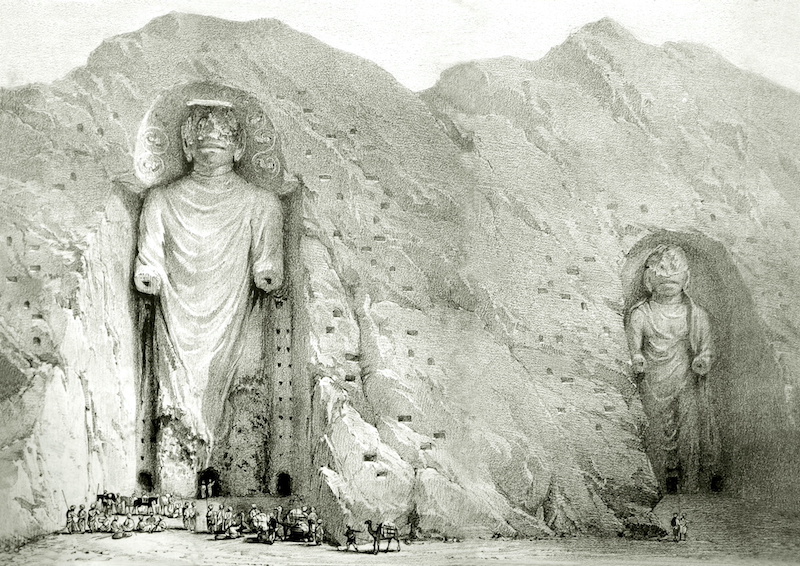Some Musings from Major Amin.
Some Musings from Major Amin.

Another Browncast is up. You can listen on Libsyn, Apple, Spotify, and Stitcher (and a variety of other platforms). Probably the easiest way to keep up the podcast since we don’t have a regular schedule is to subscribe to one of the links above!
Mr. Tilak Devasher, Author, Member, National Security Advisory Board and former Special Secretary, Govt of India joins Maneesh, Somnath and Dr. Ali to talk about his latest book The Pashtuns- A Contested History.
Jimmy Carter the good Christian in 1979 started a policy in Afghanistan that birthed Islamic Extremism and worldwide destabilization that still continues to this day. Jimmy Carter and his National Security Advisor, Zbigniew Brzezinski funded (over a USD billion) and armed mujaheddin (jihadists) who would later become the Taliban. (Operation Cyclone)
Fast forward to 2001, Carter’s chickens hatched into the attacks on the U.S on September 11, 2001. Not much different from the Indian Indira Gandhi trained and funded LTTE attacking the Indian Army and assassinating her son Rajiv Gandhi, the PM of India.
Then the next round started with George Bush bombing Afghanistan, while 9 of the 9/11 suicide terrorist were from Saudi Arabia. That was the war on Terror and axis of Evil, and much like the war on Drugs just keeps giving and giving (more on that later)
Carter’s Afghan war lead to the destruction of that developing nation. Afghan women were launched back into the future of the 13th century, and the war killed over a million Afghan men, women and children. For over forty years Afghanistan has been a humanitarian disaster. Between 562,000 and 2,000,000 civilians were killed and millions of Afghans fled the country as refugees.
If one reads most Western Media, Head Chopper Taliban and other Islamic groups are considered barbaric. Really, so bombs dropped on Wedding groups, women and children and similar is not barbaric. The lucky ones die instantly, some other have hours or days of trauma with half their body parts whereever. The really unlucky ones manage to survive, with mind and body barely functional. US war veterans are begging on the streets are spat on and referred to by “armchair warriors” as “fxxxing losers”. (30,177 U.S. veterans post-9/11 wars have died by suicide).
All these US wars were sold to the US public as the need to promote Democracy, Human Rights, Womens Rights (and in Carters time Capitalism). It was basically a “Look There” to the US public while the MIC (Military Industry Complex a term coined by President Eisenhower) stole trillions. Wall Street made out like bandits too with Obomba and Trump bail outs. The smoke and mirror propaganda is falling apart, in the US and all over the world, courtesy the Covid Pandemic and US defeat by a rag tag, flip flop wearing group.


The take home points of comparison of Afghan War with Vietnam
a) Afghan war cost was double that of Vietnam War (in todays dollars).
b) Vietnam war had 20 times US service death, i.e. boots on the ground, indicative of a determination to win.
c) Much less civilian deaths in Afghan War (approx 50 times less). Dropping bombs for sake of expending ammunition.?
Economic Bottom Line: US has 23 Trillion in Debt, thats a 107% Debt/GDP.
The whole reason for US being in Afghanistan was to siphon off US tax payer money. A huge portion of the 2.2 Trillion spent.
Sold to US taxpayer as Nation Building, Womens Rights the works.
Just some 2500+ US combat deaths much much less than in Vietnam (58,000+). Too many deaths and the US public would be against the war.
Like Christianity and Civilize the Savages, Democracy, Human Rights are just smoke and mirrors to loot from the invaded country. However, to loot natural resources takes time and investment, and no guarantees of very profitable returns (exception Libya; instant return, the 140 tonnes of Gold was whisked away).
For the kleptocrat mentality (MIC and Wall Street) the looting of natural resources is too long a time frame. So someone figured out, much easier to steal from US public.
a) Start a war,
b) Fund with debt
c) Skim huge percentage on weapons, development programs.
d) Drop plenty of bombs to justify purchase of more.
d) Make sure casualties are low so public wont be against war.
The Brits were much better at “resource extraction” with their colonialism. Created a brown nose class to keep the natives in check. Built infrastructure, eg railways and “exported” natural resources back to Britain. However, that took a good hundred years.
Even when weapons of war are not actually destroyed, their manufacture is still a convenient way of expending labour power without producing anything that can be consumed. (Orwell 1984)
This has been the biggest wealth transfer from the middle class and blue collar to the 1% and the 10%. What will happen when the tide recedes and those earning less than 60K/year find out they have been lied to, specially the MAGA crowd.
a) The prediction of the graveyard of Empires ?
b) What form will it take, eg end of Capitalism.
c) US image as a moral leader and indispensable nation
d) US image as the foremost military power
For those who want to delve into the esoteric, this is movement of Pluto into Capricorn, that last happened around 1776. (eg Turning Point: The United States’ Pluto Return interesting history too, eg repatriation of 400K Mexican Americans around 1933).
Finally: These are not my brilliant insights. Much like Newton said, stand on shoulders of Giants. Just been reading since about 2005, Matt Tabbibi, Matt Stoller. Specially Satyajit Das and Raguram Ranjan who gave me insight into Derivatives.
Costs of the Afghanistan war, in lives and dollars
https://apnews.com/article/middle-east-business-afghanistan-43d8f53b35e80ec18c130cd683e1a38f
Note: Over 30,177 U.S. service members and veterans of the post-9/11 wars have died by suicide.
https://watson.brown.edu/costsofwar/costs/human/military/killed
From the War Nerd
The wonderful thing about this kind of spending, in the deeply corrupt lobbyist world of DC, is that it shunts tax dollars directly to the stockholders, connected military firms like Raytheon, Lockheed Martin, et al., legislators, military brass milking the DoD/corporate link, and even lowly CIA contractors like Johnny Spann —without angering a single taxpayer or benefiting them in any way.
And so, rather than upset their fellow shareholders, GWB, then Obama and Trump, just nodded and smiled at the conveyor-belt of $100 bills. The beauty is the corruption in the US system. Book deals, Speaker fees all legal. Just many ways of laundering bribes.
https://www.nakedcapitalism.com/2021/08/the-war-nerd-was-there-a-plan-in-afghanistan.html
My piece on Afghanistan is up on Substack (it’s free). Gotten good feedback so far, so check it out!

 Buddhism and Islam on the Silk Road has an extensive section on Afghanistan. The Bamiyan Buddhas reminds us what the texts make clear: up until 900 AD the highlands in an around modern Afghanistan were heavily Buddhist. The Turki Shahi kings of Kabul seem to have patronized Buddhism. In contrast, their successors, the Hindu Shahi kings, seem to have tilted toward what we would call Hinduism.
Buddhism and Islam on the Silk Road has an extensive section on Afghanistan. The Bamiyan Buddhas reminds us what the texts make clear: up until 900 AD the highlands in an around modern Afghanistan were heavily Buddhist. The Turki Shahi kings of Kabul seem to have patronized Buddhism. In contrast, their successors, the Hindu Shahi kings, seem to have tilted toward what we would call Hinduism.
Because I’m posting a Substack on Afghanistan soon the civilizational and cultural identity of Afghanistan is on my mind. After my reading and reflection, I’ve come to the conclusion that the area and the people can be thought of as a crossroads between Persian, Central Asian, and Indian. Central Asia includes both Iranic and later Turkic cultures, while the Persian influence reflects a deeply west Iranic sensibility. Finally, it has hard to deny that India and much of southern and western Afghanistan are deeply connected geographically, biologically, and culturally.
And yet some Indians keep claiming that “actually Afghanistan use to be Hindu…” This is false. At least by any comprehensible definition of “Hindu.” It is true that Afghanistan was once heavily Buddhist, but Buddhism is not Hinduism. It is true that there have long been Indians in Afghanistan, but there have been Indians in Southeast Asia as well. It is true that the Iranian pagans, like the Nuristanis, worshipped gods and practiced traditions that descend from one’s affinal to the Vedic Aryans, but the pre-Vedic religion of the Indo-Aryans was not Hinduism as we’d understand it.
To a great extent, this sort of cultural imperialism is harmless and cringe. But it’s a bit on the insensitive side given what’s going on in Afghanistan, where ironically Indian-origin Deobandi Islam is is reigning supreme…
I had posted an earlier blog post with the somewhat tongue in cheek title “America’s brilliant strategy in Afghanistan”. This was basically a note (and an audio version of the same) from Major Amin, arguing that strategically a US exit was a brilliant move as it ensured that this tar baby is now the problem of Pakistan, China, Russia and Iran (and to some extent, India), and not an expensive American headache. The thought is strategically sound (if very cynical and cold blooded), but I have some doubts about whether the US is consciously trying to do this (they may indeed end up doing this, and could even emerge stronger, with their rivals weaker, as a result, but that may not have been the conscious intention). Anyway, here, in no particular order, are my random thoughts on this topic:
See the older post for more random thoughts and predictions.
Sethi sahib’s optimistic takes are here:
Below is an opinion essay in the New York Times by Afghan National Army (ANA) Lieutenant General Sami Sadat. LTG Sami Sadat,only 36, is one of the most loved and respected men in all of Afghanistan. He demonstrated remarkable success as the commander of the 215th Maiwand ANA Corps before being recalled to Kabul. The ANA lost over 70,000 Killed in Action (KIA). Including the MoI (Ministry of Interior) ANP (Afghan National Police), NDS (National Directorate of Security) and Arbekai the total Killed in Action was probably well over 100,000. The exact number is not known since the Afghanistan MoI and MoD (Ministry of Defense) have both classified the numbers since 2010 because they were afraid it would harm morale. In 2020 alone ANDSF KIA was likely over 15,000. I have been told that many of the ghost soldiers in many ANA battalions were actually KIA being kept on the rolls so that their salaries could support their families.
Posting LTG Sami Sadat’s NYT essay for those who can’t read it through the pay wall:
++++++++++++++++++++++++++++++++++++++++++++++++++++++++++++++++
GUEST ESSAY
Aug. 25, 2021
By Sami Sadat
General Sadat is a commander in the Afghan National Army.
For the past three and a half months, I fought day and night, nonstop, in southern Afghanistan’s Helmand Province against an escalating and bloody Taliban offensive. Coming under frequent attack, we held the Taliban back and inflicted heavy casualties. Then I was called to Kabul to command Afghanistan’s special forces. But the Taliban already were entering the city; it was too late.
I am exhausted. I am frustrated. And I am angry.
President Biden said last week that “American troops cannot and should not be fighting in a war and dying in a war that Afghan forces are not willing to fight for themselves.”
It’s true that the Afghan Army lost its will to fight. But that’s because of the growing sense of abandonment by our American partners and the disrespect and disloyalty reflected in Mr. Biden’s tone and words over the past few months. The Afghan Army is not without blame. It had its problems — cronyism, bureaucracy — but we ultimately stopped fighting because our partners already had.
It pains me to see Mr. Biden and Western officials are blaming the Afghan Army for collapsing without mentioning the underlying reasons that happened. Political divisions in Kabul and Washington strangled the army and limited our ability to do our jobs. Losing combat logistical support that the United States had provided for years crippled us, as did a lack of clear guidance from U.S. and Afghan leadership.
I am a three-star general in the Afghan Army. For 11 months, as commander of 215 Maiwand Corps, I led 15,000 men in combat operations against the Taliban in southwestern Afghanistan. I’ve lost hundreds of officers and soldiers. That’s why, as exhausted and frustrated as I am, I wanted to offer a practical perspective and defend the honor of the Afghan Army. I’m not here to absolve the Afghan Army of mistakes. But the fact is, many of us fought valiantly and honorably, only to be let down by American and Afghan leadership.
Continue reading Afghan National Army Lieutenant General Sami Sadat
The world is surprised, and now even memeing, about the Taliban’s takeover in Afghanistan. In Pakistan, the outside country most responsible for this (unless you count America and the stupidity of its occupation strategies as the most responsible) there have been broadly three camps on this. The majority feeling was one of awkwardness, trepidation and a calling of the equivalent of councils of war. In the Army Chief’s staff rooms, in the Prime Minister’s and Chief Ministers and political party heads’ secretariats and across media stations in Pakistan, the national security and Afghanistan experts were on display and they were giving their council to their respective audiences on what was happening with the fall of Kabul and what it meant.
A smaller minority was one that was sometimes part of this but also openly condemning the takeover of the Taliban. Honourable mention should go to the Women’s Democratic Front for openly condemning the takeover of Afghanistan and various branches of Pakistan’s new-on-the-scene Aurat March (Women’s March) parroted their view. Frankly, I am very happy for the Aurat Marchers to get an explicit foreign policy – that would be cool. The PPP, as far as I can tell did not explicitly condemn the Taliban takeover in Kabul and as far as I know, no Pashtun nationalist formation did either, although if the Pashtun Tahaffuz Movement did, I am waiting for their views.
Lastly, I have to mention the Taliban supporters. From heads of religious groups, to Taliban and ’80’s Afghan Mujahideen fanboys in the Pakistani media, this was, I feel, an even smaller group, restricted by age, that was openly hailing the takeover of Afghanistan by the Taliban. It really was/is a sight to behold to see men in the media, of or beyond retirement age, hailing the takeover of Afghanistan by the Taliban – a sick joke. My guess is younger fans of the Taliban were either intelligently hiding, or more likely taking part in either jihadi ops or doing propaganda or harassment for the Taliban. So the pro-Taliban crowd inside Pakistan might be quieter than its portrayed – a bit like Italy after it switched ides in WWII to join the Allies against Germany.
But that’s Pakistan. What about India? This is one time BP commenters are welcome. Sound off and tell us what the Indians thought about the Taliban, what were the camps inside the country and how large they are.
Postcript — The Pakistan government and establishment’s view:
The official Pakistan government view, of the foreign ministry, the part allegedly controlled by Imran Khan says that they will not stick their neck out as an individual country and will only recognise Taliban control of Afghanistan if a group of countries, likely Russia, China and Iran, all simultaneously recognise the Taliban’s control of Kabul. I used the word alleged, because the foreign ministry takes its marching orders from the Pakistan Army’s General Hear Quarters, Imran Khan is fine with that, and so the foreign ministry’s views are the Army and establishment’s views.
______________________________________________________
You can see the original post at https://these-long-wars.blogspot.com/2021/08/general-bajwa-please-retire.html, also, If you like my work, please support it at https://www.patreon.com/TheseLongWars
Another BP Podcast is up. You can listen on Libsyn, Apple, Spotify, and Stitcher (and a variety of other platforms). Probably the easiest way to keep up the podcast since we don’t have a regular schedule is to subscribe to one of the links above.
In this episode Amey, myself and Karol Karpinski (Karol is a self-described financial plumber at the World Bank, with experience in Afghanistan and other “gap” countries) talk about Afghanistan and the American pullout. Check it out, leave comments. We hope to talk again soon on this topic and focus on aspects we left out.
If you want to just hear my summary of what happened in Afghanistan, it starts at the 7 minute mark. I think i talked too much, and should have asked Karol more questions, but that will have to be the next podcast 🙂
I did an interview with Myra MacDonald on my Substack. It’s gated, but I’ll ungate it for nonsubscribers in two weeks.